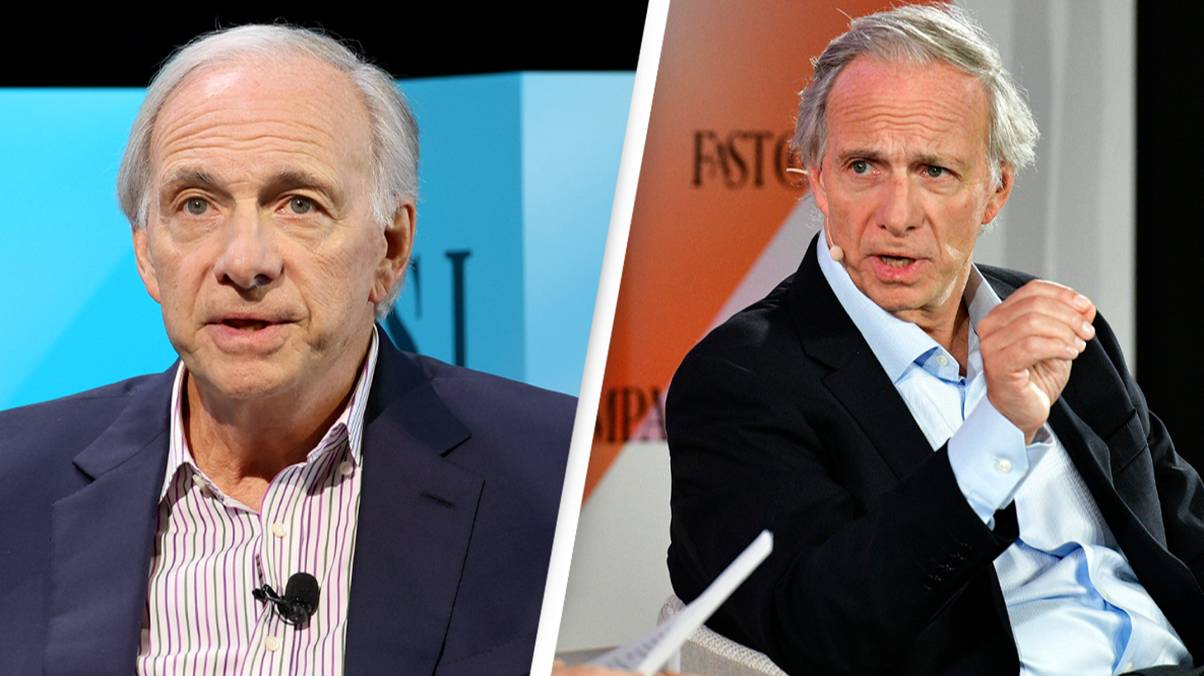
A billionaire whose announcement of layoffs was compared to the Hunger Games plot took an unusual approach to management by making sure every single employee meeting was recorded.
New York-born Ray Dalio, who is now 75 years old, has amassed a net worth of $14 billion after founding hedgefund Bridgewater Associates, which has its headquarters in Connecticut.
He has become known in the business world for the way he approached the management of the firm, which involved working by what he dubbed ‘The Principles’ – essentially a set of ‘rules’ intended to offer solutions to problems and advise the best road to success.

The growth of Bridgewater Associates
Forty years after Dalio started the business in 1975, by 2016, Bridgewater was up to 1,700 full time employees, as well as numerous temporary contractors.
Though growth is typically good for a business, a book about Dalio, titled The Fund, claims the firm had become ‘unwieldy and hard to manage’.
Author Rob Copeland claims Dalio knew this, so in order to protect his business he announced that many employees would have to lose their jobs.
Per Copeland, employees were tasked with trying to ‘outlast’ one another during the firing process, with one member of staff likening it to the ‘Hunger Games‘.

The Transparency Library
No one wants to have to fight for their job, but one thing Dalio did in announcing the layoffs was embrace his Principle of honesty. Being ‘transparent’ was important to the founder – though Copeland suggests Dalio approached this on his own terms.
The ‘Transparency Library’ is described in the book as one of Dalio’s ‘most prized creations’, and featured tens of thousands of hours of meeting recordings. The business recorded everything from debates and tellings-off to ‘dull economic chats’, resulting in ‘so many tapes that some were never replayed’.
However, if Dalio wanted to find a meeting, it was there for him to look back on.
Such was the case with one meeting he conducted with an employee, Katina Stefanova, who Dalio allegedly accused of failing in her expectations when it came to hiring new members of staff.
Copeland’s book claims Dalio made Stefanova cry during the meeting, but that afterwards he had the recording edited to show him as a ‘kind but firm questioner’.
Recording the meetings was seemingly done to help staff members learn and grow, but in Stefanova’s case, Dalio allegedly sent the recording out to the thousand or so employees that Bridgewater had at the time, along with the title ‘Pain + Reflection = Progress’.

Eyes everywhere
According to Copeland, the recording of meetings was just the ‘tip’ of surveillance at Bridgewater. The firm was determined to track any offending behavior to ensure its employees were staying on track.
To help with this mission, they hired a former FBI official as the head of security, and Copeland describes how employees ‘seemed to be watched in real time’.
The monitoring covered everything from whether someone locked their computer when they left their desk, to what was being printed out and what was being photocopied, and what attachments were being sent on emails.

‘Distorted Stories’
In response to Copeland’s book, a spokesperson for Dalio told Business Insider it was ‘another one of those classic tabloid books’.
The spokesperson also noted Copeland had previously been rejected from a job at Bridgewater – something the author admitted in his book – and claimed he had gone on to write ‘distorted stories about Bridgewater and Ray Dalio’.
“He did this by speaking with former employees who had been dismissed, seeking out negative rumors, and making up the stories he wanted to fit his narrative because he wasn’t there for the events he describes,” the spokesperson said.
“In fact, the author states in the preface that the book is filled with made-up dialogue and the book’s footnotes are full of statements from people directly contradicting what is written about them.
“The picture the book paints is obviously implausible given Bridgewater’s long track record of investment performance and its high percentage of long-tenured employees. Mr. Dalio doesn’t want to divert his attention from more important things to discuss this trivial gossipy book.”
UNILAD has reached out to Dalio and Bridgewater for comment.